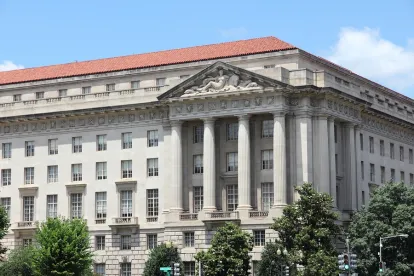And despite a continuing downward trend in civil enforcement case initiation and completion, other indicators do not demonstrate decreased enforcement activity under Trump. In fact, in fiscal year (FY) 2019, EPA assessed more than $360 million in federal administrative and civil judicial penalties, which, according to EPA, “exceeds the annual penalty values assessed in all but three of the past 10 years.”[4] Often, the total penalties assessed on an annual basis correlate with the settlement of large cases rather than the political affiliation of the executive branch. In FY 2017, EPA assessed around $1.7 billion in civil penalties — most of which comprises the $1.45 billion Clean Air Act mobile source penalty assessed against Volkswagen. And in FY 2016, EPA assessed more than $6 billion in civil penalties, $5.7 billion of which resulted from the BP settlement. There was also an increase in criminal cases opened, from 128 in FY 2018 to 170 in FY 2019, continuing the reversal of the downward trend in criminal enforcement actions that began after 2011:[5]
Considering all this, it is hard to make the case that enforcement under Trump has “plummeted.”
Although there is no single explanation for the downward trend civil enforcement, it must be acknowledged that Trump policies have facilitated the continuing decrease in civil enforcement. However, there are several explanations unrelated to the political leanings of a particular president’s political appointees, and therefore a change in administration is unlikely to reverse the trend quickly or substantially. For example, greater corporate commitment to compliance, coupled with a well-developed environmental consultant community and a strong nationwide base of capable environmental attorneys, could explain at least some of the downward trend in enforcement. Here we’ll look at two other possible explanations in detail: an increase in voluntary compliance and a decrease in EPA’s budget.
The purpose of the EPA’s self-disclosure program is to foster corporate compliance and incentivize disclosure and correction of violations by eliminating or reducing civil penalties if certain requirements are met. And companies appear to be taking increasing advantage of the program to avoid formal enforcement actions. EPA announced a “renewed emphasis” on the program in May 2018,[6] and EPA’s efforts to promote the program appear to have paid off. The increase in voluntary disclosure from 2018 to 2019 was approximately 20%. According to EPA, in FY 2019, 635 entities with more than 1,901 facilities voluntarily disclosed violations pursuant to EPA’s self-disclosure policies, compared with 289 entities and 666 facilities in 2015:[7]
This increase in voluntary compliance may be contributing to the decline in enforcement actions.
On the other hand, while some are quick to blame the decrease in enforcement on budget reductions, that explanation may not hold water. It is true that EPA’s budget, when adjusted for inflation, has steadily decreased over the past four decades; it is also true that President Trump has threatened to slash that budget. The numbers, shown on the following chart, reveal that despite some standout years during the early Obama administration, the EPA budget during the Trump administration is consistent with funding during the final four years of the Obama administration.[8]
It is apparent from these trends that the ability of a president and his or her political appointees to control career government employees and derail decades of forward momentum in environmental enforcement and compliance is limited. In other words, another Trump term will not take us back to the Wild West, and a Biden presidency will likely not bring a large wave of EPA enforcement actions. But some policies enacted under Trump may indeed change should Biden win the election — including, for example, the reversal of the DOJ’s recent abolition of Supplemental Environmental Projects in settlements with EPA.[9] Biden will likely also bring an added focus to environmental justice and climate change issues, which may have an impact on enforcement. But it is critical to see the forest for the trees and recognize that since the dawn of environmental regulation in the United States, there has been more consensus than disagreement on the need for environmental regulation and enforcement, as evidenced by the steady increase in environmental regulations over time, regardless of which administration is in power. And whether our next president is Donald Trump or Joe Biden, the best way to avoid the attention of local and federal environmental agencies is to refine your compliance program with the assistance of legal and technical experts.
The next article in this series will look at the election’s impact on climate change regulations and policy. Join us after the election, on November 11, 2020 for a roundtable discussion of the election results and the potential impact on environmental law.
Footnotes
[1] https://www.washingtonpost.com/climate-environment/2019/02/08/under-trump-epa-inspections-fall-year-low/
[2] https://www.americanbar.org/groups/environment_energy_resources/publications/trends/2018-2019/july-august-2019/doing-less-with-less/
[3] https://www.epa.gov/sites/production/files/2020-02/documents/fy19-enforcement-annual-results-data-graphs.pdf
[4] Ibid.
[5] Ibid.
[6] https://www.epa.gov/sites/production/files/2018-05/documents/refreshannouncementfordisclosures.pdf
[7] https://www.epa.gov/sites/production/files/2020-02/documents/fy19-enforcement-annual-results-data-graphs.pdf
[8] https://www.epa.gov/planandbudget/budget
[9] SEPs are generally popular with both industry and local governments as an alternative to the payment of civil penalties.





 />i
/>i.jpg)



